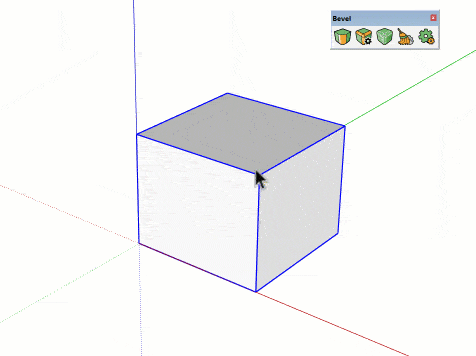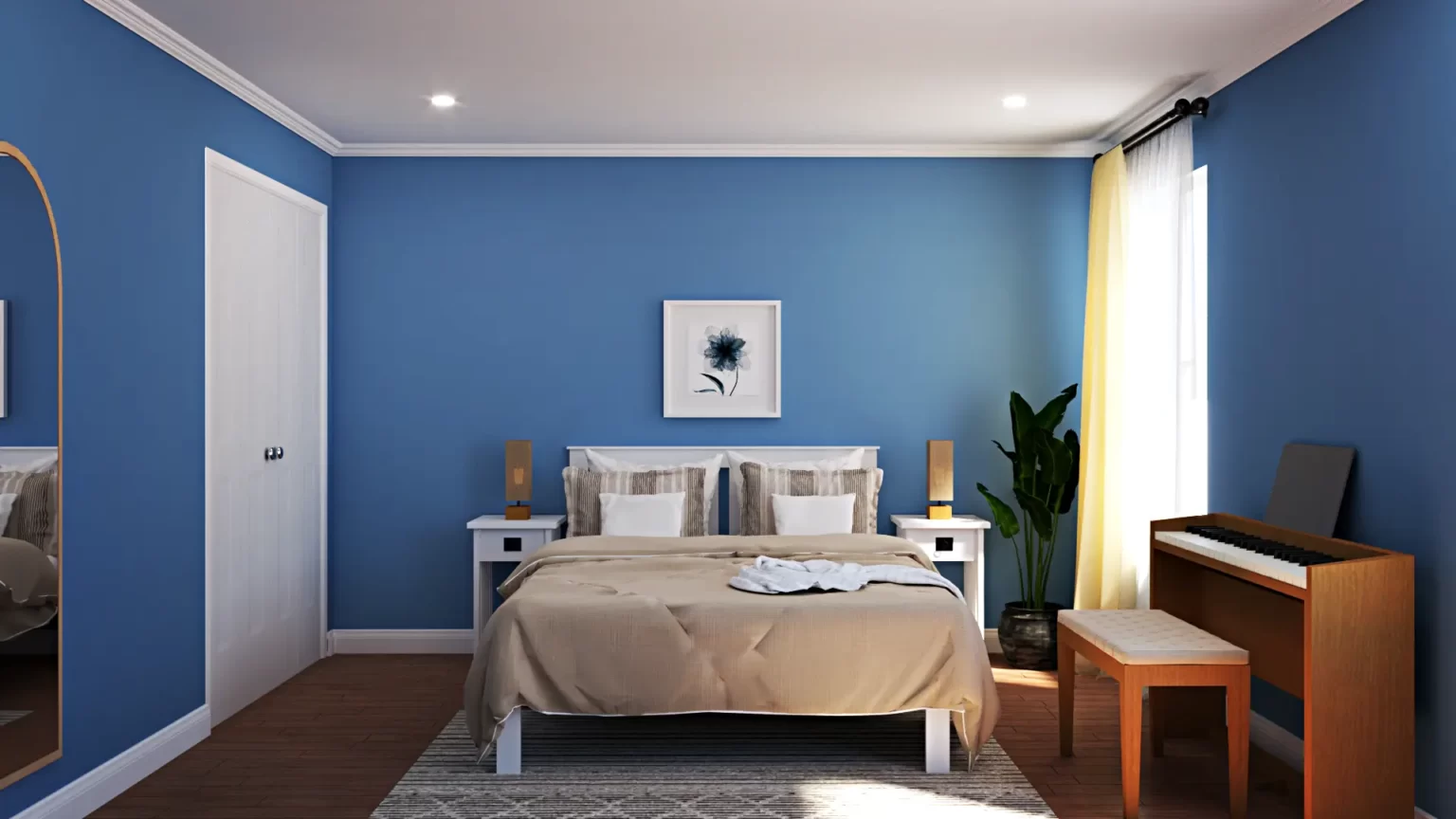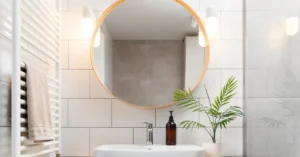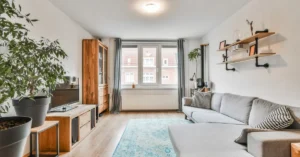In the world of interior design, effective client relationship management (CRM) is crucial for delivering exceptional service and successful project outcomes. As an interior designer, you need a robust system to manage client relationships and streamline communication. In this blog post, we’ll explore how you can utilize Notion, a versatile productivity tool, as a CRM for interior design. By leveraging Notion’s powerful features and customizable templates, you can organize project details, track client interactions, and enhance collaboration, ultimately taking your client management to the next level.

Streamlining Client Relationships and Improving Efficiency in Interior Design with Notion CRM
Section 1: Understanding Notion as a CRM for Interior Design
What is Notion and why is it suitable for CRM in interior design?
Notion is a versatile all-in-one workspace that combines note-taking, project management, and collaboration features. It provides a flexible platform for organizing information, collaborating with team members, and managing client relationships. Notion’s versatility and customizable nature make it an ideal choice for interior designers seeking a CRM solution that can adapt to their unique workflow and requirements.
Benefits of using Notion as a CRM for interior designers
- Centralized Information: Notion allows you to consolidate all client-related data, including contact details, project specifications, design briefs, and communication history, in one place. This eliminates the need for scattered documents and spreadsheets, ensuring easy access to vital information whenever you need it.
- Customizable Templates: Notion offers a wide range of templates tailored for different use cases, including CRM. You can leverage these templates or create your own customized layouts to suit your specific needs as an interior designer. This flexibility allows you to design a CRM system that aligns perfectly with your workflow and preferences.
- Collaboration and Communication: Notion’s collaborative features enable seamless communication and collaboration with clients. You can share project updates, design concepts, and progress reports directly within Notion, keeping clients informed and involved throughout the design process.
- Task Management: Notion’s task management features, such as to-do lists, kanban boards, and deadlines, help you stay organized and track project progress efficiently. You can assign tasks to team members, set deadlines, and monitor project milestones, ensuring smooth project execution.
- Integration Capabilities: Notion offers integrations with other popular tools, such as Google Calendar, Slack, and Trello, allowing you to connect your CRM system with existing tools and streamline your workflow. This integration capability eliminates the need for constant switching between different applications, saving time and effort.
Overview of key Notion features and how they align with CRM needs in interior design
- Databases and Tables: Notion’s databases and tables provide a structured way to store and organize client information. You can create custom fields to capture specific details like client preferences, budget, and project timelines. This allows for easy filtering, sorting, and searching of client data.
- Kanban Boards: Notion’s kanban boards offer a visual way to manage the different stages of your interior design projects. You can create boards for design concept, development, revisions, and finalization, and drag and drop tasks as they progress. This visual representation helps you track the project’s status at a glance.
- Inline Comments: With Notion’s inline comments feature, you can have discussions and gather feedback directly within project documents. This eliminates the need for back-and-forth email chains and ensures all relevant communication is captured within the context of the project.
- Templates: Notion provides pre-designed templates for CRM, project management, and more. These templates can be customized to fit your interior design business’s unique needs, saving you time and effort in creating a CRM system from scratch.
Section 2: Setting Up Your Notion CRM for Interior Design
Choosing the right Notion template for interior design projects
When setting up your Notion CRM for interior design, selecting the right template is crucial. Notion offers several templates specifically designed for CRM purposes, including ones tailored for interior design. These templates often come with pre-built structures and layouts that can be customized to suit your requirements. Look for templates that offer sections for client information, project details, communication logs, and task management.
Customizing your Notion workspace to match your workflow
Once you have chosen a suitable template, it’s time to customize your Notion workspace to align with your interior design workflow. Rearrange sections, add or remove fields, and
personalize the layout to reflect the specific information and tasks relevant to your projects. Consider including sections for design briefs, mood boards, material samples, project timelines, and client feedback. Aim to create a workspace that feels intuitive and streamlines your day-to-day operations.
Integrating essential CRM elements, such as contact information and project details
Start populating your Notion CRM with essential information, such as client contact details, project specifications, and deadlines. Use the database and table features to structure and categorize this information. You can create fields for client names, addresses, phone numbers, email addresses, and any other relevant contact information. For project details, include fields for project names, descriptions, budgets, and timelines. By inputting and organizing these key elements, you establish a solid foundation for effective client management.
Section 3: Organizing Project Details and Tracking Progress
Creating project-specific databases and boards
Within your Notion workspace, create project-specific databases and boards to effectively organize project details and track progress. Databases can be used to store and manage client information, while boards can be used to visualize the different stages of your projects. For example, you can create a database for clients and a board for each project stage, such as “Concept Development,” “Design Revisions,” and “Finalization.” This structure allows you to maintain an overview of all your projects while drilling down into specific details when needed.
Capturing and organizing design briefs, mood boards, and specifications
Use Notion’s rich text editor and multimedia capabilities to capture and organize design briefs, mood boards, and specifications within project pages. Embed images, videos, or external links to provide visual references and context for your design work. Utilize subheadings and bullet points to break down complex information into easily digestible sections. By keeping all design-related materials within Notion, you can access them conveniently and share them with clients for feedback and collaboration.
Tracking project milestones, deadlines, and progress using Notion’s task management features
Notion’s task management features enable you to track project milestones, set deadlines, and monitor progress effectively. Create tasks for each project stage or deliverable and assign them to team members or yourself. Set due dates and prioritize tasks based on their importance. As tasks are completed, update their status within Notion, providing a real-time overview of project progress. This level of visibility helps you ensure that projects stay on track and deadlines are met.
Section 4: Enhancing Communication and Collaboration with Clients
Centralizing client communication channels within Notion
To streamline client communication, centralize all relevant communication channels within Notion. You can create a dedicated section for communication logs or use inline comments within project pages to capture discussions. Save email exchanges, meeting notes, and important messages within Notion, creating a comprehensive record of all client interactions. By having everything in one place, you can easily refer back to past conversations and maintain a clear overview of client communication history.
Managing and responding to client inquiries and feedback
With Notion as your CRM, you can efficiently manage client inquiries and feedback. Set up a system for capturing and categorizing client inquiries and assign them to team members for timely response. Use inline comments or dedicated sections within project pages to address client feedback. By keeping client inquiries and feedback organized and accessible, you can ensure prompt and effective communication, ultimately enhancing client satisfaction.
Collaborating on design revisions and approvals in real time
Notion’s collaborative features make it easy to collaborate with clients on design revisions and approvals. Share design concepts and revisions directly within Notion, allowing clients to provide feedback and suggestions in real time. Use inline comments or dedicated sections for clients to provide their input. This collaborative approach ensures that the design process remains transparent, efficient, and collaborative, resulting in a design outcome that meets or exceeds client expectations.
Section 5: Leveraging Notion’s Advanced Features for Client Relationship Management
Creating interactive dashboards to visualize project status and client interactions
Notion’s advanced features, such as databases and formulas, allow you to create interactive dashboards to visualize project status and client interactions. Utilize filters, views, and linked databases to create dynamic dashboards that provide an overview of ongoing projects, upcoming deadlines, and client interactions. These dashboards enable you to quickly assess project health, identify bottlenecks, and make informed decisions for efficient client management.
Generating reports and analytics to gain insights into project performance
With Notion, you can generate reports and analytics to gain valuable insights into your project performance and client relationships. Utilize formulas and aggregations to calculate metrics such as project completion rate, average response time to client inquiries, or client satisfaction scores. By regularly reviewing these reports, you can identify areas for improvement, optimize your processes, and deliver exceptional client experiences.
Automating routine CRM tasks with Notion’s integrations and workflows
Take advantage of Notion’s integrations and workflows to automate routine CRM tasks and improve efficiency. Integrate Notion with other tools you use, such as Google Calendar or project management platforms, to synchronize data and reduce manual data entry. Create workflows within Notion to automate repetitive tasks, such as sending follow-up emails or generating client reports. By automating these tasks, you can save time, reduce errors, and focus more on delivering high-quality interior design services.
Conclusion
By harnessing the power of Notion as a CRM for interior design, you can optimize client relationships and communications, ultimately enhancing your overall design process. From organizing project details and tracking progress to facilitating collaboration and streamlining communication, Notion provides a flexible and customizable solution tailored to the specific needs of interior designers. Embrace the potential of Notion as a CRM tool, and elevate your client management practices to deliver outstanding interior design experiences.












